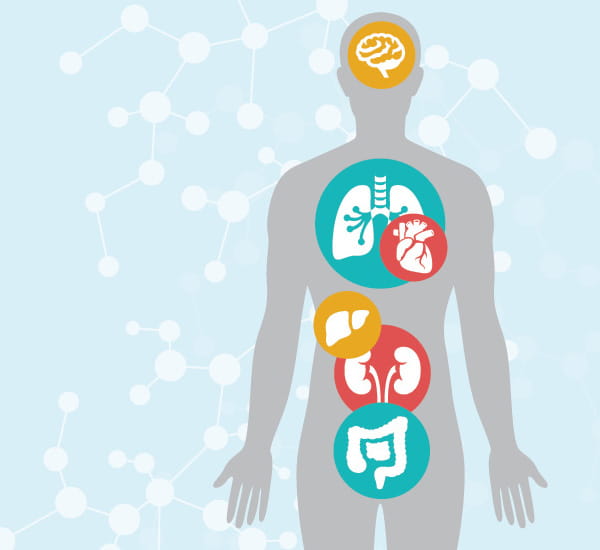Familial hypercholesterolemia
Familial hypercholesterolemia (FH) is an inherited condition that causes high cholesterol.
What is familial hypercholesterolemia?
Familial hypercholesterolemia (FH) is an inherited condition that causes high LDL cholesterol, or “bad cholesterol.” It’s often due to a change, or mutation, in one of your genes.
Other factors can also cause FH. For instance, your doctor might make an FH diagnosis based on your LDL cholesterol level, physical exam findings and family history.
Gene changes that can lead to familial hypercholesterolemia
- APOB gene change: The APOB gene helps your LDL cholesterol be found and captured by the LDL receptor.
- LDLR gene change: The LDLR gene helps your cells capture LDL cholesterol from the bloodstream.
- PCSK9 gene change: The PCSK9 gene helps your cells break down LDL cholesterol.
When these genes are changed or aren’t working like they should, high levels of blood cholesterol can block your arteries and lead to dangerous conditions like heart disease, heart attack and stroke. You can reduce your risk of developing these conditions with proper medical interventions treatment, including medication and healthy lifestyle habits.
How familial hypercholesterolemia increases your risk
All people with untreated FH have a higher risk of heart attacks and strokes as younger adults. People with FH who also have a change in their genes are at even higher risk. Since it's inherited and passed down to family members, it’s important to let your family know you have this condition.
Familial hypercholesterolemia and pregnancy
Talk with your doctor if you’re thinking of becoming pregnant or are pregnant before you start or stop any therapies.
Find a provider who understands familial hypercholesterolemia
If you have FH, talk to:
- A genetic counselor
- A lipid specialist or clinician with expertise in FH (often through cardiology)
- Your primary care provider




